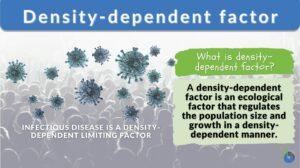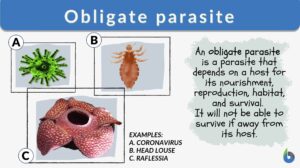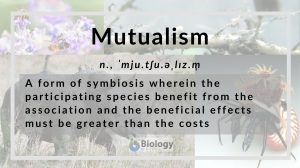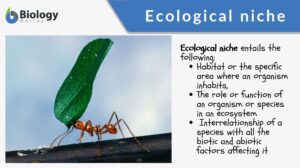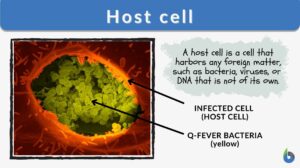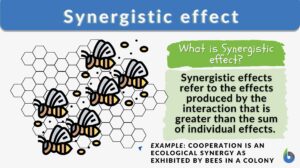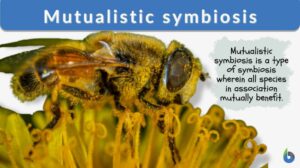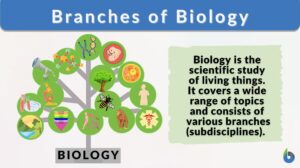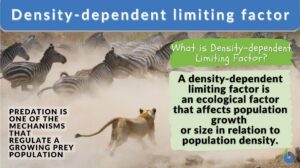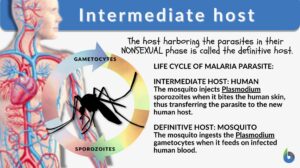Search Results for: parasitism
Parasitism
Organisms depend on different sources of food to survive. Larger organisms like plants make their own food (autotrophs) and... Read More
Ectoparasitism
Definition noun A form of parasitism wherein the parasite lives outside the body of the host (as opposed to a parasite... Read More
Kleptoparasitism
Definition noun A form of parasitism wherein an animal takes food or objects collected, caught, prepared, or stored by... Read More
Endoparasitism
Definition noun (parasitology) A form of parasitism involving endoparasite Supplement Parasitism is one of the many forms of... Read More
Density dependent factor
Density-dependent factors are the limiting factors of an ecosystem that regulate population growth in a density-dependent... Read More
Commensalism
Commensalism Definition What is commensalism? Literally, commensalism is a Latin word that means ‘to eat at the same... Read More
Obligate parasite
Parasitism is a form of symbiosis that occurs between a parasite and its host. The parasite is the organism that generally... Read More
Parasitoidism
Definition noun A form of parasitism wherein an organism (called parasitoid) lives on or inside the host at one phase in its... Read More
Parasitology
Definition noun A scientific study of parasites, their hosts, and the relationship between the parasite and the... Read More
Ectoparasite
Definition noun, plural: ectoparasites (parasitology) A parasite that lives outside the body of the... Read More
Parasitoid
Definition noun, plural: parasitoids An organism that lives on or inside the host at one phase in its life cycle, and... Read More
Infestation
Definition noun, plural: infestations (ecology) The state of having a large number of pest organisms thriving in a... Read More
Endoparasite
Definition noun, plural: endoparasites (parasitology) A parasite that lives within the body of the... Read More
Ecological niche
Ecological Niche Definition An ecological niche refers to the interrelationship of a species with all the biotic and... Read More
Synergistic effect
Synergistic Effects Definition In biology, synergistic effects are the effects when chemical substances or biological... Read More
Anthropophilic
Definition adjective (parasitology) Preferring or seeking a human host over another animal Supplement The term... Read More
Mutualistic symbiosis
Mutualistic Symbiosis Definition In order to understand what a mutualistic symbiotic relationship means, we will break down... Read More
Infective stage
Definition noun (parasitology) The stage in the life cycle of an endoparasite wherein it can initiate infection to its... Read More
Branches of biology
What is a Branch of Biology? A branch of biology is a specialized field or a sub-discipline in a much broader field of... Read More
Density dependent limiting factor
What Is A Density-Dependent Limiting Factor? Density-dependent limiting factors are limiting factors, which, depending on... Read More
Haustorium
Definition noun, plural: haustoria (botany) Knob-like root for penetrating into and absorbing nutrients and water from the... Read More
Metabiosis
metabiosis dependence of one organism on another for its existence. See: commensalism, mutualism, parasitism. Origin: meta--... Read More
Tertiary consumer
Definition noun, plural: tertiary consumers Any organism that consumes or feeds largely on primary and secondary... Read More
Environmental resistance
Environmental Resistance Definition Environmental resistance is such a process in which certain different elements or... Read More
Exudate cell
Definition noun, plural: exudate cells Any of the cells participating in the forming of exudate during inflammation or a... Read More
Community (biology)
Community, in biology, refers to the assemblage of interacting organisms (either of the same or different species)... Read More
Intermediate host
Intermediate Host Definition When looking at the relationships amongst different biological members of our biosphere, we... Read More
The Evolution of Cell Organelles
The previous tutorial page noted the emergence of protists, organisms that possessed a distinct cell nucleus and contained... Read More



